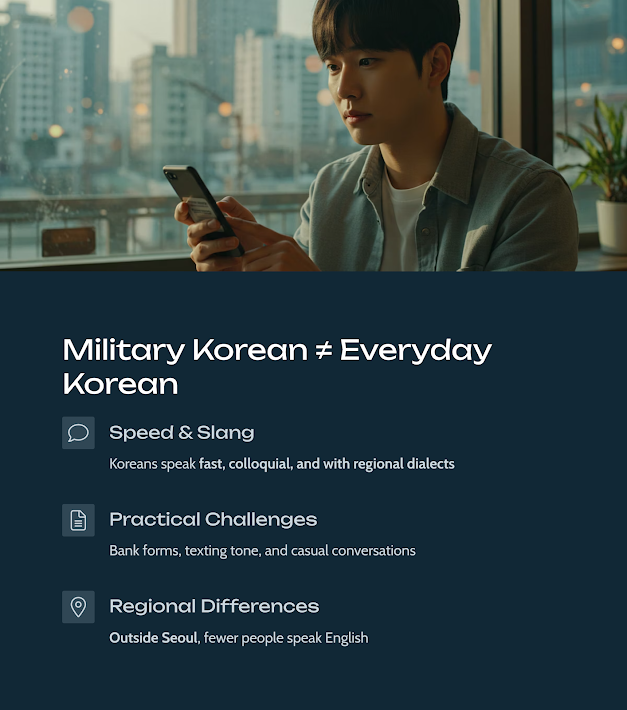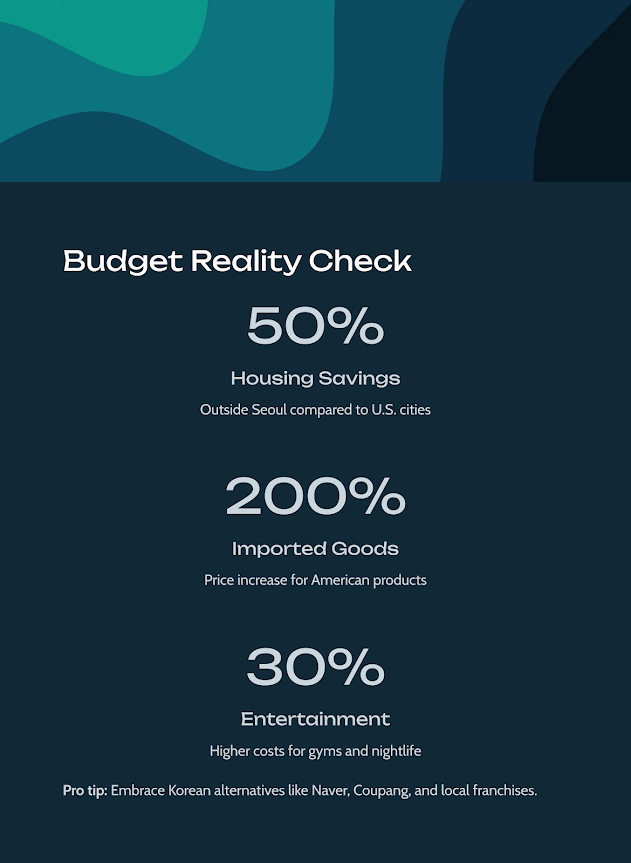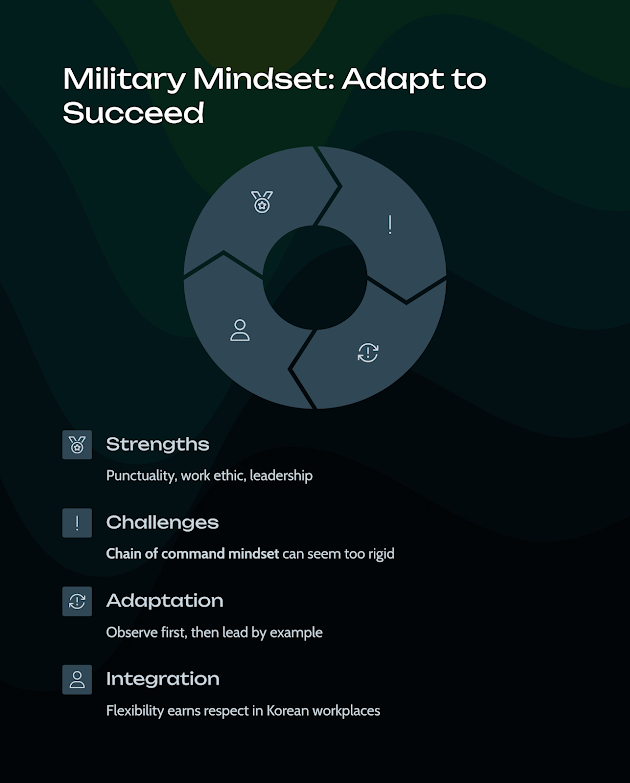Insights from a Korean-American veteran adjusting to life back in Korea
What Every U.S. Army Veteran Should Know Before Relocating to Korea
As a Korean-American who served in the U.S. military and relocated to Korea after ETS, I thought the transition would be easy. But moving back “home” came with its own surprises. Whether you're planning to settle in Korea after service, looking to reconnect with your roots, or just seeking a new adventure, these are the things I wish someone had told me before I landed.
Reverse Culture Shock Is Real
Even if you're ethnically Korean, you might feel like a foreigner
Coming back to Korea, I expected to feel at home. Instead, I found myself navigating unfamiliar social rules, hierarchy systems, and cultural expectations. From subtle language nuances to being expected to bow a certain way, small things can add up fast.
Key point: Prepare yourself mentally for the reality that you’ll need to adapt, not just return.
Your Military Habits Might Clash with Korean Norms
Structure meets fluidity, and it can be frustrating at first
Korean workplaces and public systems often favor unwritten rules over strict SOPs. In the military, punctuality is everything—but in Korea, meetings might start 10 minutes late and run an hour over.
It’s not laziness, it’s cultural flexibility. Adjusting your expectations is essential for smooth integration.
Job Hunting Isn’t What You’d Expect
Your military background matters—but not always in the way you think
Outside of U.S. military bases, many Korean employers don’t know how to interpret your DD-214 or MOS.
It’s critical to translate your experience into skills civilians understand: leadership, discipline, logistics, bilingual communication.
| Military Term | Civilian Translation |
|---|---|
| NCOIC | Team Leader / Operations Coordinator |
| Logistics Specialist | Inventory Manager / Supply Analyst |
| Squad Leader | Project Supervisor / Field Coordinator |
You’ll Need to Relearn Everyday Korean
Military Korean and daily Korean are very different
Even if you studied Korean in the Army, you might struggle with casual slang, bank forms, or texting tone. Koreans speak fast, colloquial, and sometimes with regional dialects.
Apps help, but real improvement comes from conversations—especially outside of Seoul, where fewer people speak English.
Healthcare Is Great—Once You Learn the System
Yes, it’s affordable. But navigating it takes effort
Coming from the VA or Tricare, I was amazed by Korea’s walk-in clinics and low prices. But the system is fast-paced, paperwork-heavy, and often only in Korean.
Bring a Korean friend for your first visits or use medical concierge apps when needed.
Dating Can Be… Complicated
Being Korean-American doesn’t make you a local
If you're single, be aware that dating in Korea involves different expectations. Gender roles, social hierarchy, and age all play a part.
People may assume you’re fully Korean—until you speak. Others might treat you like a foreigner. It’s confusing, so stay honest and self-aware.
Cost of Living Is Lower, but Lifestyle Isn’t Cheaper
Know where to save—and where to spend
Rent outside of Seoul is affordable, but imported goods, gyms, and nightlife can be expensive. Also, subscriptions like Spotify or YouTube Premium are often geo-locked or require workaround payments.
Pro tip: Embrace Korean alternatives like Naver, Coupang, and local franchises.
Military Mindset Helps—But Only If You Adapt
Discipline gives you an edge, but flexibility earns respect
You’ll stand out in Korea for your punctuality, work ethic, and leadership style. But applying the chain of command mindset in civilian life might come off too strong.
Observe first. Then lead by example rather than rank.
Community Is Everything—Find Your People
The expat veteran network is stronger than you think
From USO events to Facebook groups and embassy meetups, there are networks built just for people like us. I found mentors, job leads, and lifelong friends by staying active in these communities.
Even Korean veterans (ROKA) respect U.S. Army experience—start with that common ground.
Korea Changes Fast—Stay Curious
What you knew 5 years ago is probably outdated now
Neighborhoods change overnight, slang evolves every month, and trends come and go like military rotations.
The best thing you can do is keep exploring. Take language classes, try new foods, and travel the countryside.
Final insight: You’re not just moving back. You’re starting fresh—with a unique advantage no one else has.












